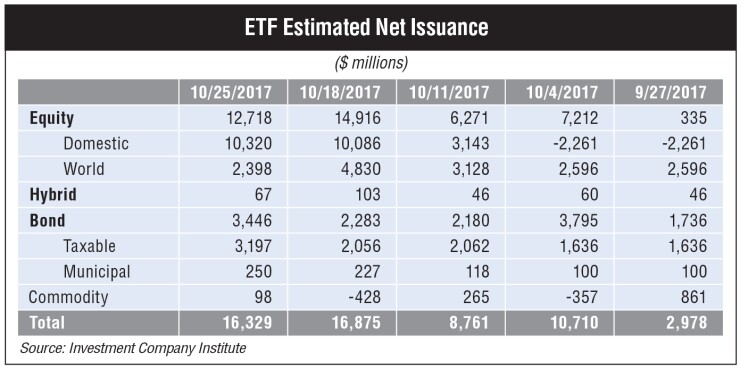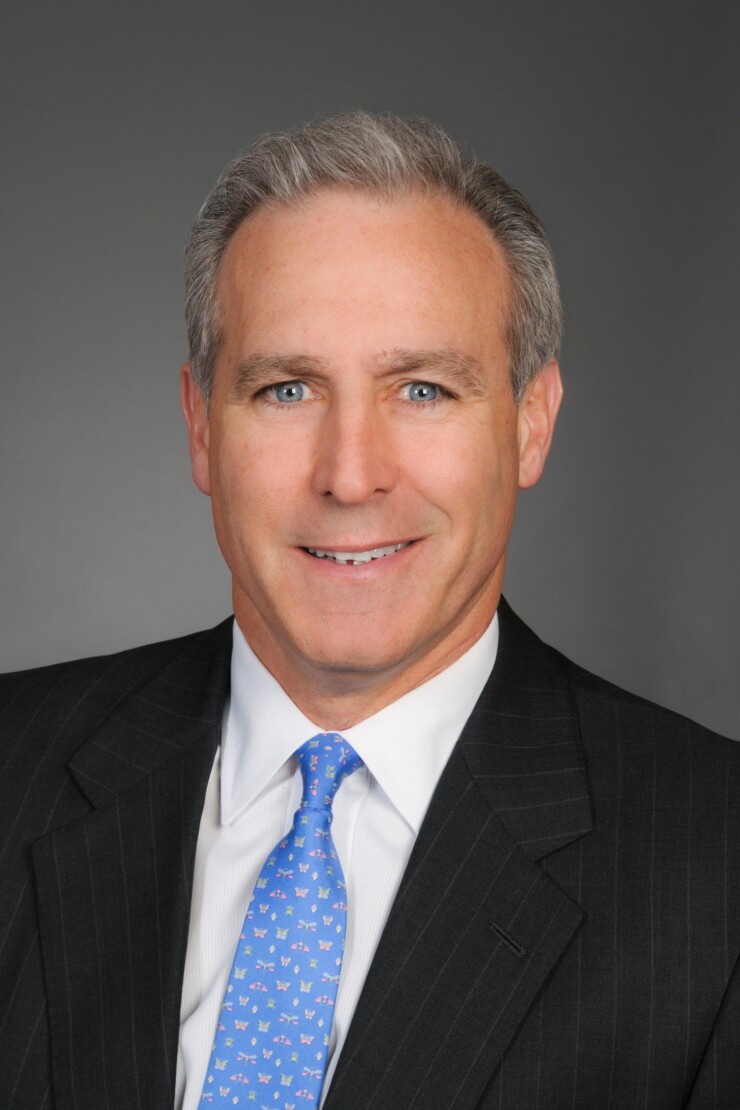Our weekly roundup of industry highlights
Morningstar ratings under scrutiny
Morningstar's point system for rating funds isn't a good guide to future performance, according to
After an examination of the research firm's rating system and the performance of thousands of funds dating back to 2003, the Journal reported that, while the greatest number of stars attracted the majority of investors' money, most failed to outperform. Just 12% of the funds awarded five stars did well enough over five years to earn a top rating for that period, according to the Journal. Ten percent performed so poorly they were eventually hit with a one-star rating.

"The star rating works well when it's used as intended: as a first-stage screen that helps identify lower-cost, lower-risk funds with good long-term performance," Morningstar told the Journal. "It is not meant to be used in isolation or as a perspective measure. Reversion to the mean is a powerful force that can affect any investment vehicle."
Morningstar said it has never claimed its star rating was an indicator of future performance.
Unfettered FoFs grow as investors fret over costs: Cerulli
External Funds of Funds have been growing at a faster pace than internal FoFs in recent years. However, there is a new breed of low-cost passive in-house funds that is also prospering, according to a study.
-
The firm has been building its passive business as investors dump active products.
July 31 -
Energy was likely a “headwind,” analysts wrote.
July 21 -
Although the funds experienced a combined $586 billion in outflows over the last two years, this segment reported inflows of $41 billion.
June 7
External FoFs offer a spread of risk and will see further inflows, provided asset managers are able to convince investors the additional layer of costs will be justified by results, according to Cerulli. The costs, however, are the main concern among investors.
"It is still extra expense that investors want to be justified. If costs are paramount, a fund of in-house passive funds is one obvious solution. In the age of the ETF, a fund of ETFs is only logical," Angelos Gousios, director of European retail research at Cerulli, said.
RESEARCH
Most North American firms unprepared for MiFID II: Simcorp
With just two months before implementation, 58% of North American firms are still working to comply with MiFID II, according to new research.

Ahead of the January 3 deadline, 23% of those surveyed by Simcorp said they are extremely confident they have a plan in place for the rule focusing on investor protection and transparency, while 77% said they are somewhat confident or not confident at all.
SimCorp recently polled 150 buy-side participants from 68 firms from the North American buy side on the operational impact of MIFID II, focusing on the directive's reach beyond the European Union. "MiFID II is one of the biggest pieces of regulation to ever hit the buy-side industry, so I am not surprised by the extent of uncertainty and concern reflected in the research and poll results," said Gernot Schmidt, product manager of MiFID II at SimCorp. "The ability to aggregate data across asset classes, geographies, business lines and underlying applications will be essential."
Portfolio managers 'learning to trust their trading desks': Celent
The interaction between trading desks and portfolio managers is crucial, according to new research.
"The ability for portfolio managers to gain incremental basis points across their investment through their trading desks is a major positive," wrote Celent's securities and investments practice senior analyst, Jay Wolstenholme. "Portfolio managers are learning to trust their trading desks and the information their traders can provide on the liquidity and safe timing of markets, optimizing execution costs."

The aggregation of transactions and positions is the base layer, Wolstenholme continued. Buy-side vendors continue to closely integrate order management systems and portfolio management system solutions to reach this enterprise goal.
PRODUCTS
Franklin Templeton Investments launches suite of ETFs
Franklin Templeton Investments is introducing its first passive ETFs, with an initial suite of 16 single-country and regional market-cap weighted ETFs.
The funds, which will target exposures to developed countries at an expense ratio of 0.09% and emerging markets at 0.19%, will be listed on NYSE Arca on Nov. 6, the firm said. This will be one of the largest simultaneous listings on the NYSE in the past decade.
WisdomTree Investments' new digital portfolio construction tool
WisdomTree Investments has launched a new platform focused on providing technology-enabled solutions to help advisors grow and scale their business. WisdomTree Advisor Solutions includes investment research and ETF education, portfolio-construction services, ETF model portfolios and practice management resources, according to the firm.
"Advisors face many challenges such as accelerating regulatory reform, evolving client needs and pressure on fees," WisdomTree Head of Global Distribution Kurt MacAlpine said. "The WisdomTree Advisor Solutions program is designed to help advisors navigate these challenges while continuing to scale their businesses."
CLS teams up with ETF providers to offer no-fee strategy
CLS Investments has partnered with five ETF providers to launch Smart ETF Models with a zero percent strategist fee, the firm said.
The firm said it teamed up with Deutsche Asset Management, First Trust, JPMorgan Asset Management, Pimco and PowerShares by Invesco to offer these models.
Above all others, millennials are likely to include the funds in their portfolios, Schwab says.
Currently CLS offers eight Smart ETF Models that are globally diversified portfolios composed of smart beta and active ETFs, as well as smaller satellite positions in ETFs focused on specific sectors, countries and alternative assets.
WisdomTree the first to adopt FinMason platform
WisdomTree and FinMason have signed a multi year deal in which the ETF and exchange-traded product sponsor will become the first to adopt FinMason's FinRiver analytical platform.
As part of the deal, FinMason will deliver institutional-grade analytics to Wisdom Tree's new digital portfolio developer through the FinRiver API platform.
Users will be able to instantaneously run risk and performance metrics, aggregate factor exposures, do scenario analysis and stress testing and conduct Monte Carlo simulations - with up to 700 analytical items in all.

ARRIVALS
Great-West names new president
Putnam Investments' former head of global investment strategies, Scott Sipple, was appointed to president of Great-West Investments, the firm announced.
Sipple now leads Great-West's efforts to identify, create and deliver investment, retirement income and advice solutions for the retirement market, the firm said.
Great-West Financial and Putnam Investments are the U.S. operating companies of Great-West Lifeco. Robert L. Reynolds is president and CEO of both companies.
Lenox Advisors appoints an asset manager
Lenox Advisors has hired former PowerShares senior regional sales consultant Kyle Martin as its new asset manager based in Bloomingdale, Illinois.
At Lenox, Martin will advise on a variety of asset allocation decisions and investment strategies, the firm said.
He will focus on the generational differences that affect building wealth and investment decisions. Lenox will work alongside the firm's existing Managing Director, Patrick Murphy.
"By partnering with Pat and Lenox Advisors, I hope to bring a unique investment perspective to our clients," Martin said.






